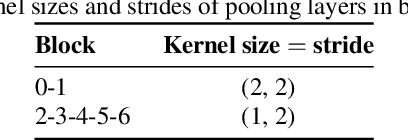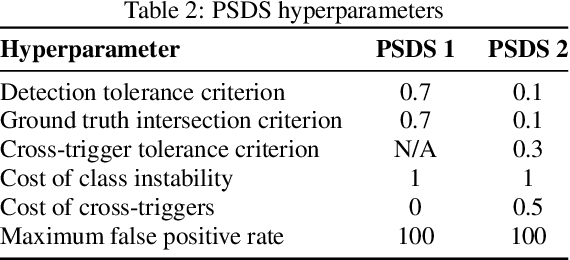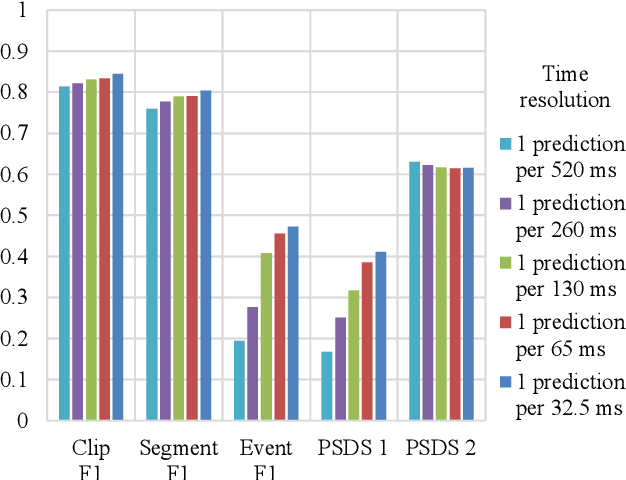Impact of temporal resolution on convolutional recurrent networks for audio tagging and sound event detection
Paper and Code
Sep 27, 2022



Many state-of-the-art systems for audio tagging and sound event detection employ convolutional recurrent neural architectures. Typically, they are trained in a mean teacher setting to deal with the heterogeneous annotation of the available data. In this work, we present a thorough analysis of how changing the temporal resolution of these convolutional recurrent neural networks - which can be done by simply adapting their pooling operations - impacts their performance. By using a variety of evaluation metrics, we investigate the effects of adapting this design parameter under several sound recognition scenarios involving different needs in terms of temporal localization.
* Submitted to DCASE 2022 Workshop
 Add to Chrome
Add to Chrome Add to Firefox
Add to Firefox Add to Edge
Add to Edge